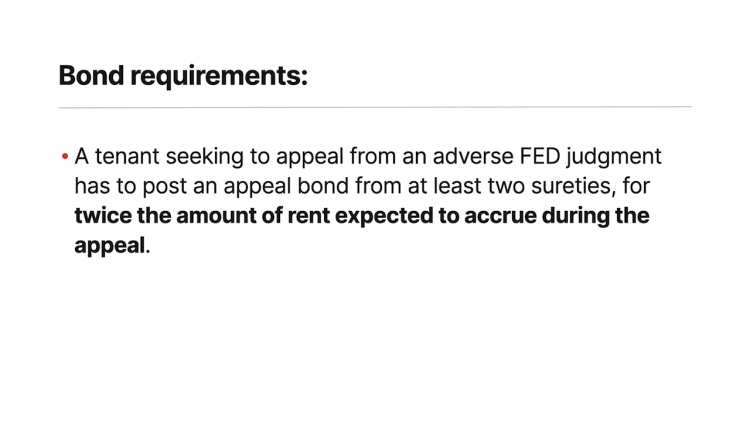Lindsey v. Normet
United States Supreme Court
405 U.S. 56 (1972)

- Written by Sara Rhee, JD
Facts
The tenants (plaintiff) rented a single-family residence from the landlord (defendant) on a month-to-month basis. On November 10, 1969, the city deemed the residence uninhabitable. The tenants requested that the landlord make needed repairs but the landlord refused. In response, the tenants withheld rent for the month of December. The landlord threatened to evict them. In Oregon, the Forcible Entry and Wrongful Detainer Statute (FED) governs the manner in which a landlord could recover possession of rented property. The FED requires trial no later than six days after the filing of the complaint, unless the tenant pays security for accruing rent. It also limits the litigable issues in a FED suit, particularly by precluding the tenant from arguing the landlord’s breach of duty to maintain as a defense. Furthermore, the FED requires the tenant to pay a bond in twice the amount of rent in order to bring an appeal. The tenants in this case brought suit in the federal district court, seeking a finding that the FED was unconstitutional. The trial court dismissed the complaint, concluding that the FED was not unconstitutional under either the Due Process or the Equal Protection clauses of the Fourteenth Amendment.
Rule of Law
Issue
Holding and Reasoning (White, J.)
What to do next…
Here's why 907,000 law students have relied on our case briefs:
- Written by law professors and practitioners, not other law students. 47,100 briefs, keyed to 996 casebooks. Top-notch customer support.
- The right amount of information, includes the facts, issues, rule of law, holding and reasoning, and any concurrences and dissents.
- Access in your classes, works on your mobile and tablet. Massive library of related video lessons and high quality multiple-choice questions.
- Easy to use, uniform format for every case brief. Written in plain English, not in legalese. Our briefs summarize and simplify; they don’t just repeat the court’s language.





